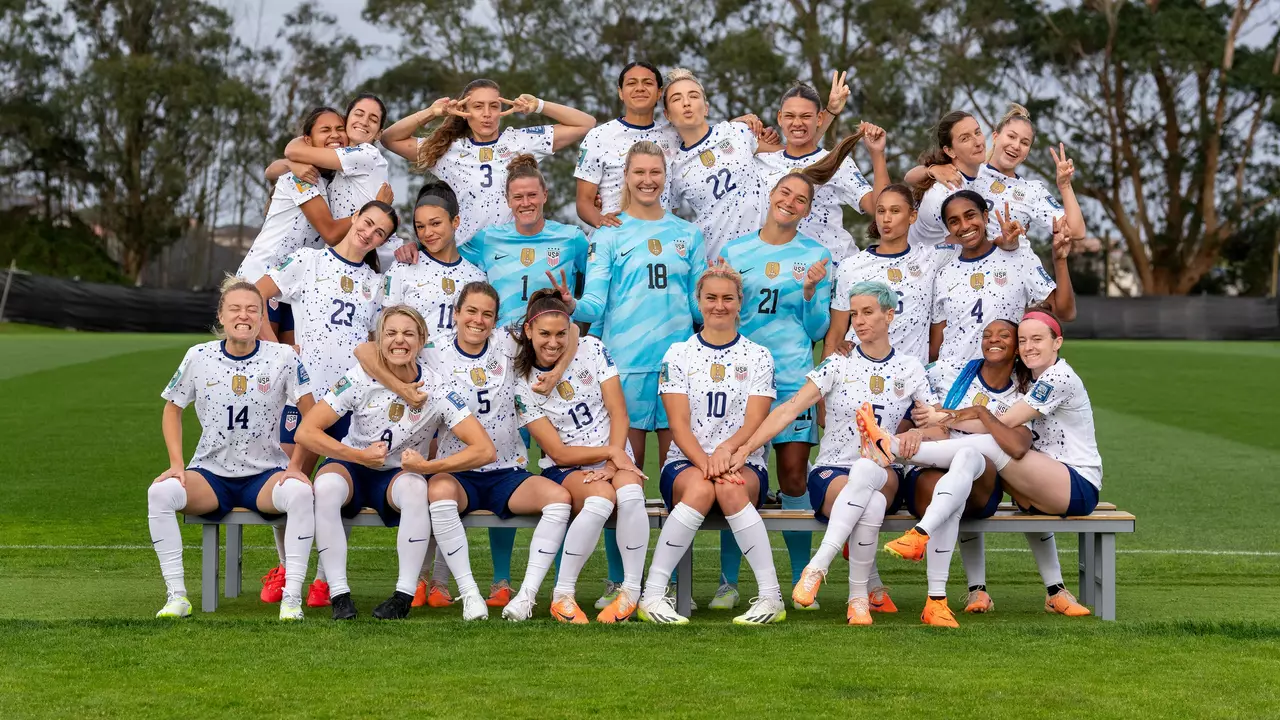Archive: 2023/07
31.07.2023
Why is the US so strong in women's soccer?
Well folks, let's dive into the world of women's soccer, or should I say, the kingdom where US ladies reign supreme! One might wonder, why is the US so mighty in women's soccer? Well, it's like asking why the sun rises in the east - it just does! But seriously, the answer lies in the early adoption of Title IX, promoting gender equality in sports, and the country's widespread infrastructure for youth soccer. Not to mention, these gals are as tough as nails and as swift as gazelles, making them a force to reckon with on the global stage! So, next time you see our ladies in action, remember, they're not just playing the game, they're defining it!
27.07.2023
What's the preferred format for a U8 soccer game?
In U8 soccer, the preferred game format is typically a small-sided game, usually 4v4 or 5v5, without goalkeepers. This size allows every player to get more touches on the ball, improving their skills and enjoyment of the game. Matches are often divided into shorter periods, rather than two halves. There's also a focus on equal playing time for all players, regardless of their skill level. Remember, the goal at this age is less about competition and more about developing a love for the game and basic skills.
23.07.2023
What is a release clause in a professional footballer's contract?
A release clause is a term in a professional footballer's contract that allows the player to leave the club if an incoming transfer offer meets or surpasses a specified amount. This set amount is decided when the contract is initially signed and is usually pretty hefty. It's a way for clubs to protect their investment and also for players to have a say in their career path. It's like a safety net for both parties - the club gets a fair return if they lose a player, and the player isn't locked in indefinitely. So, in essence, a release clause is a critical aspect of soccer contracts that balances the power between players and clubs.
20.07.2023
Will the USA national soccer team play in the World Cup?
As an avid soccer fan, I've been closely watching the USA national soccer team's journey to the World Cup. The question on every fan's mind is - will they make it this time? The answer isn't straightforward, as it depends on several factors like the team's performance in the qualifying matches and their world ranking. I can assure you, the anticipation is building up and we're all hoping to see our team grace the World Cup stage. Let's keep our fingers crossed and support our team through their journey.
11.07.2023
Why do soccer clubs not retire jersey numbers?
In contrast to many other sports, soccer clubs typically do not retire jersey numbers. The main reason for this is tradition, as the sport has a long-standing custom of assigning specific numbers to particular positions. Moreover, squads in soccer are larger than those in many other sports, making the retirement of numbers impractical. Additionally, certain numbers carry prestige and are seen as an honor to wear by upcoming players. Therefore, instead of retiring numbers, soccer clubs often pass them down to promising talents, adding to the legacy of the jersey.





